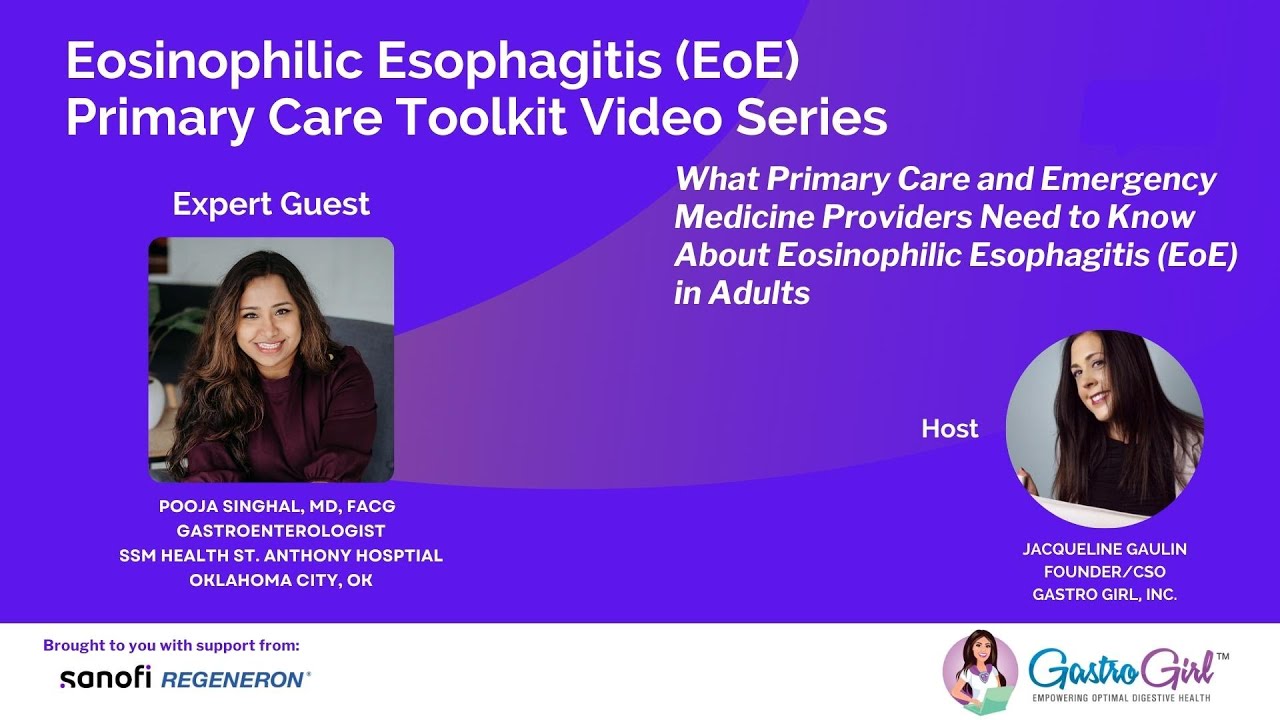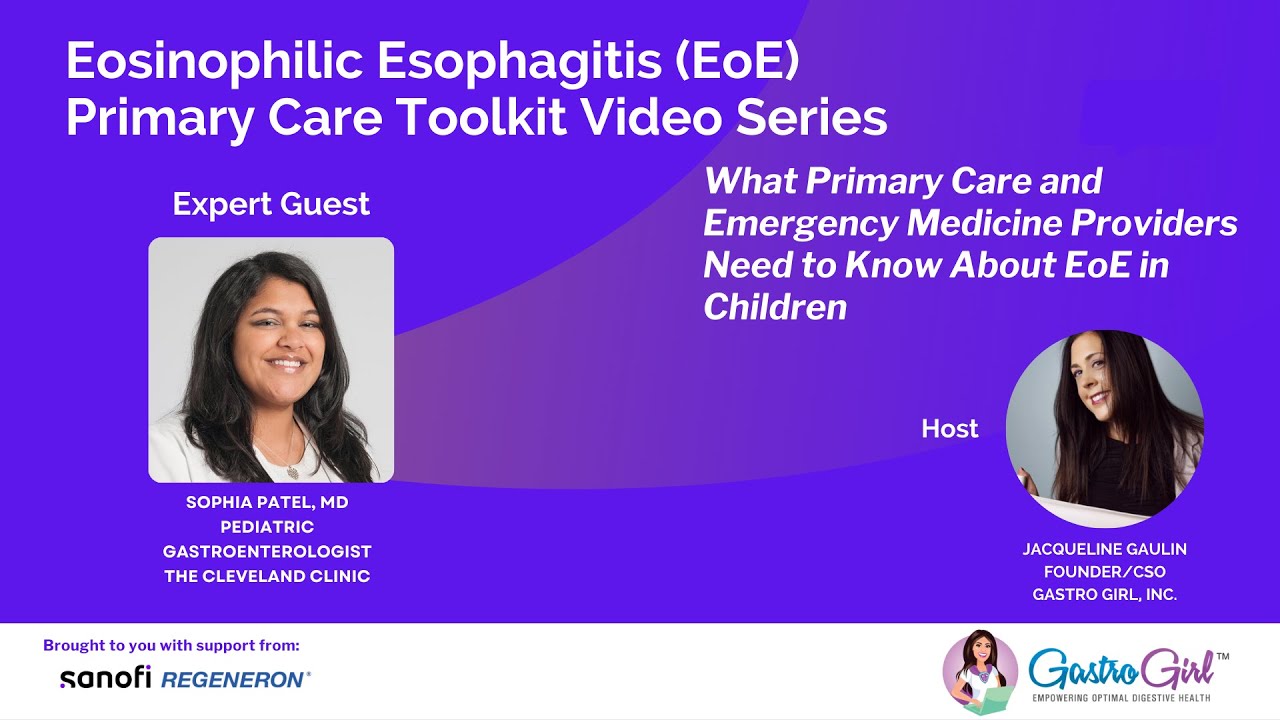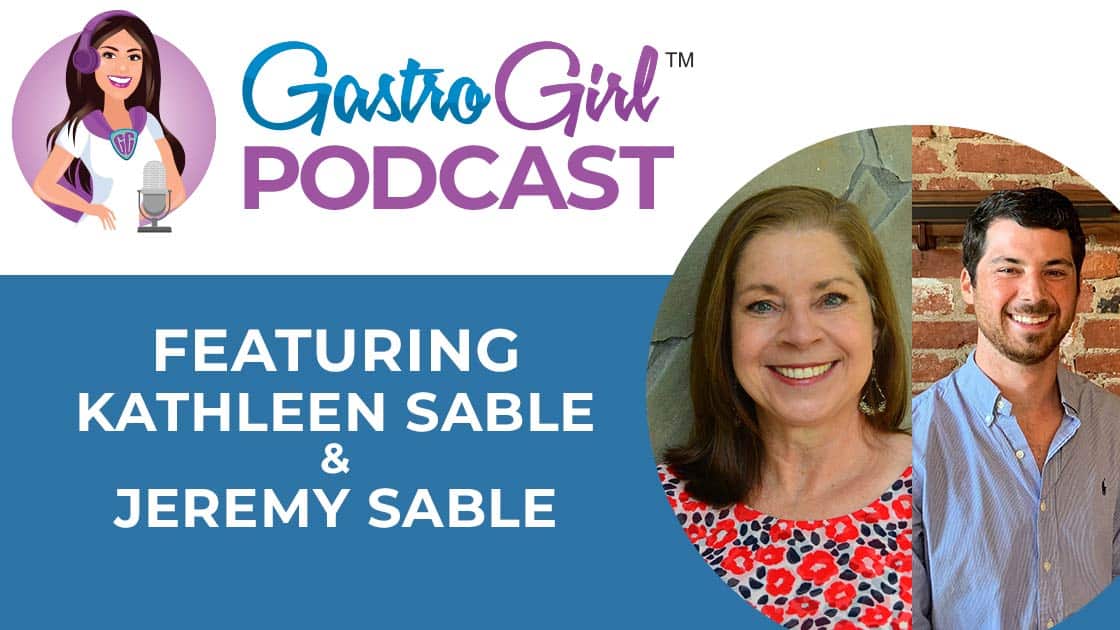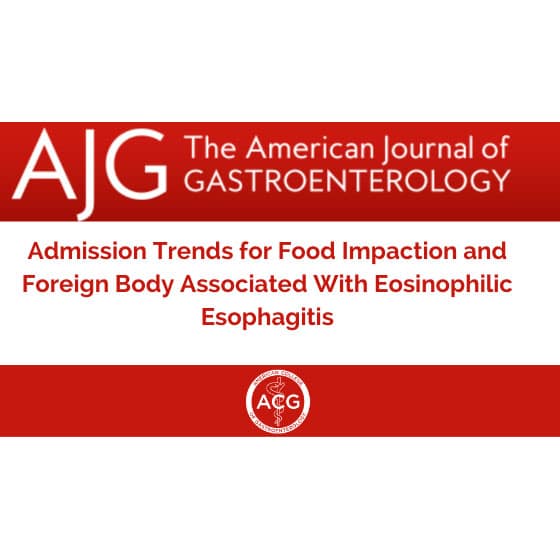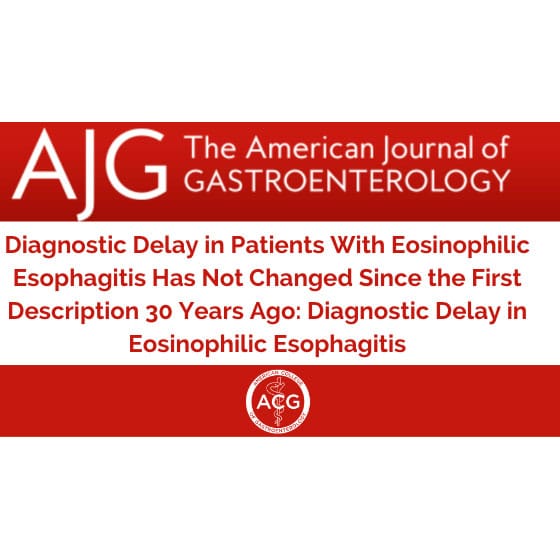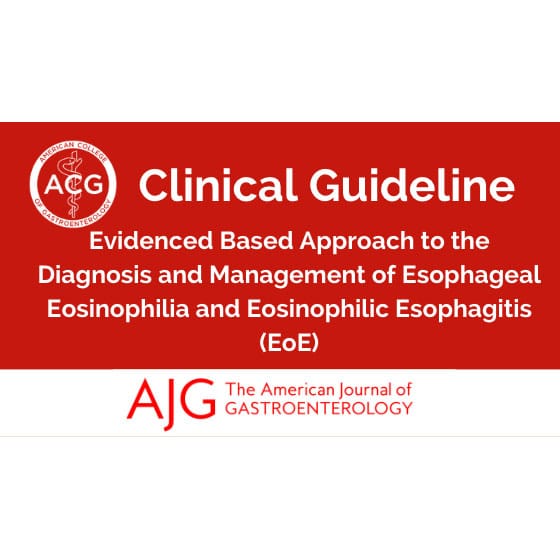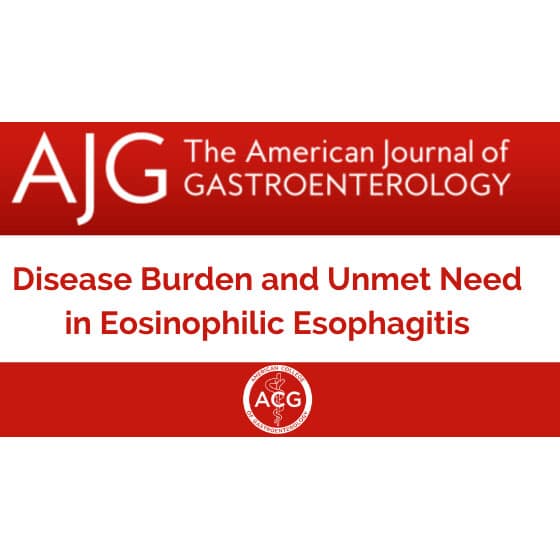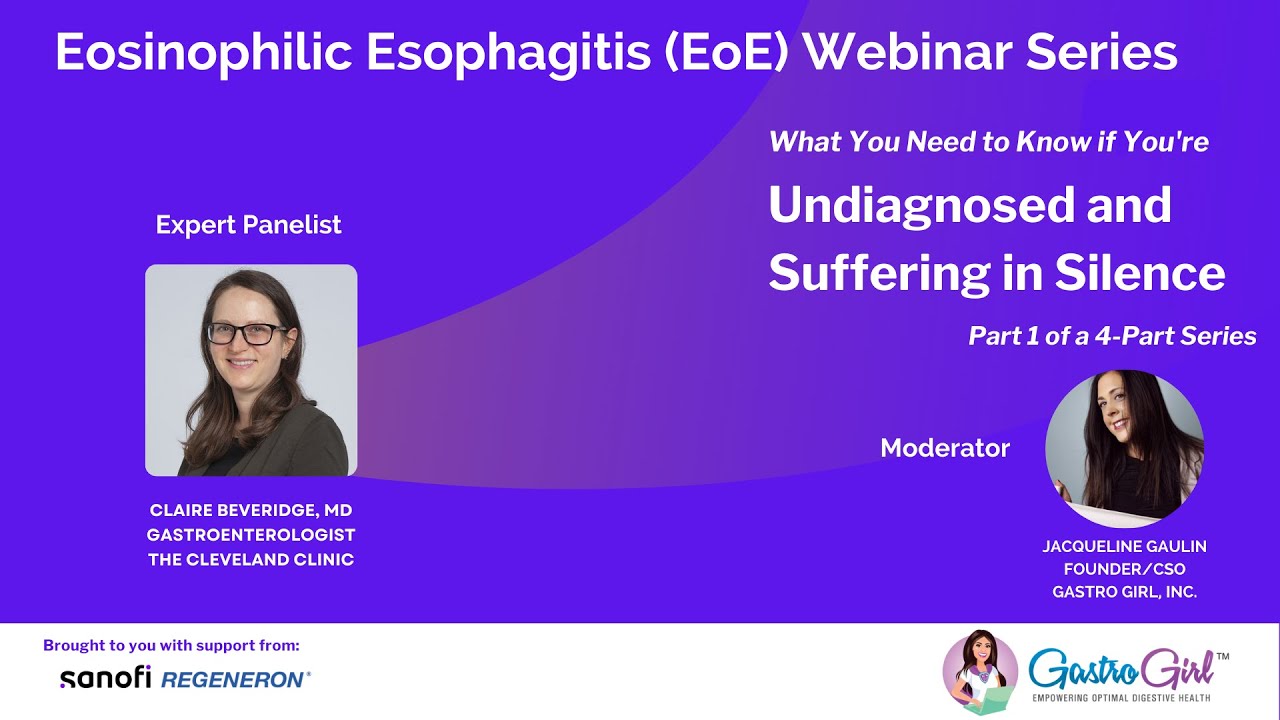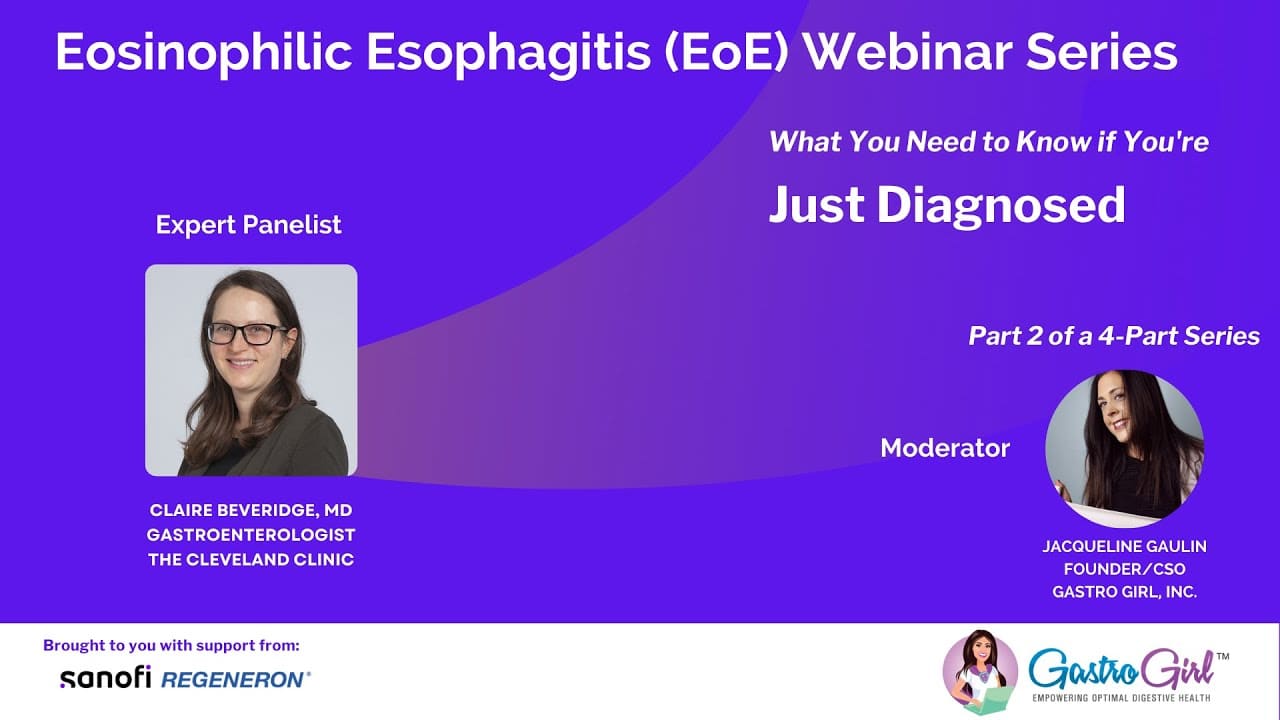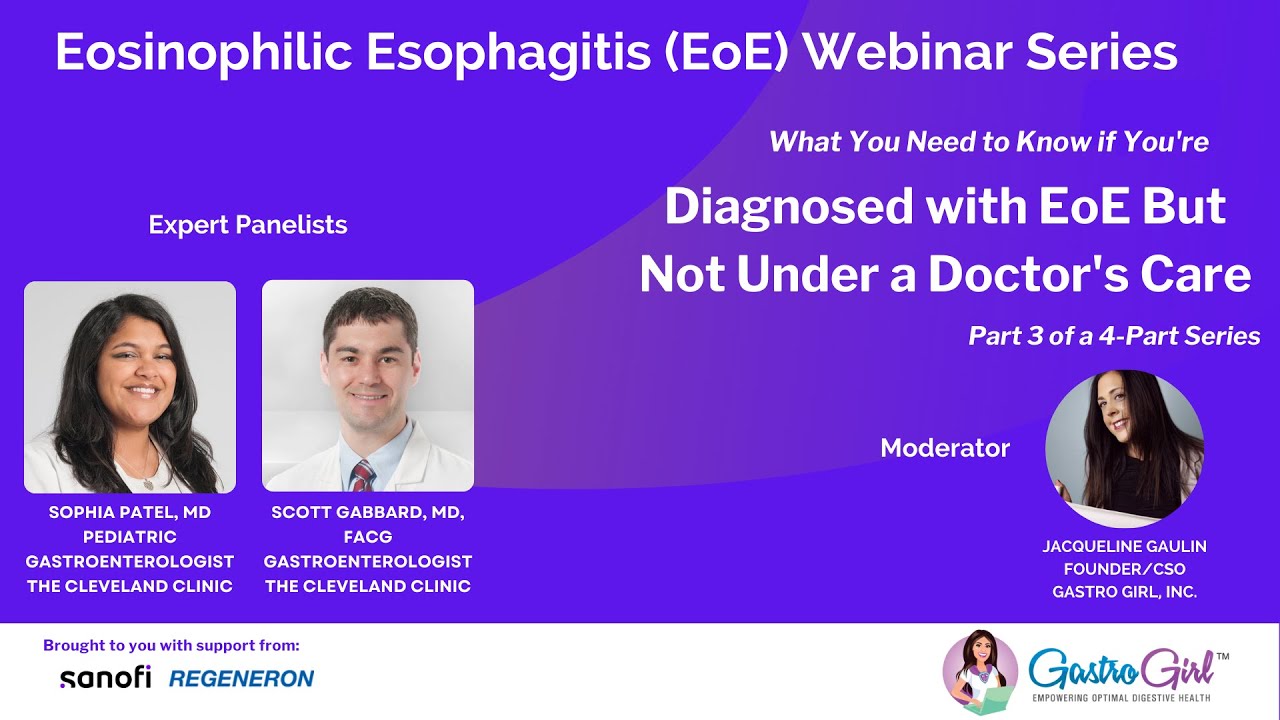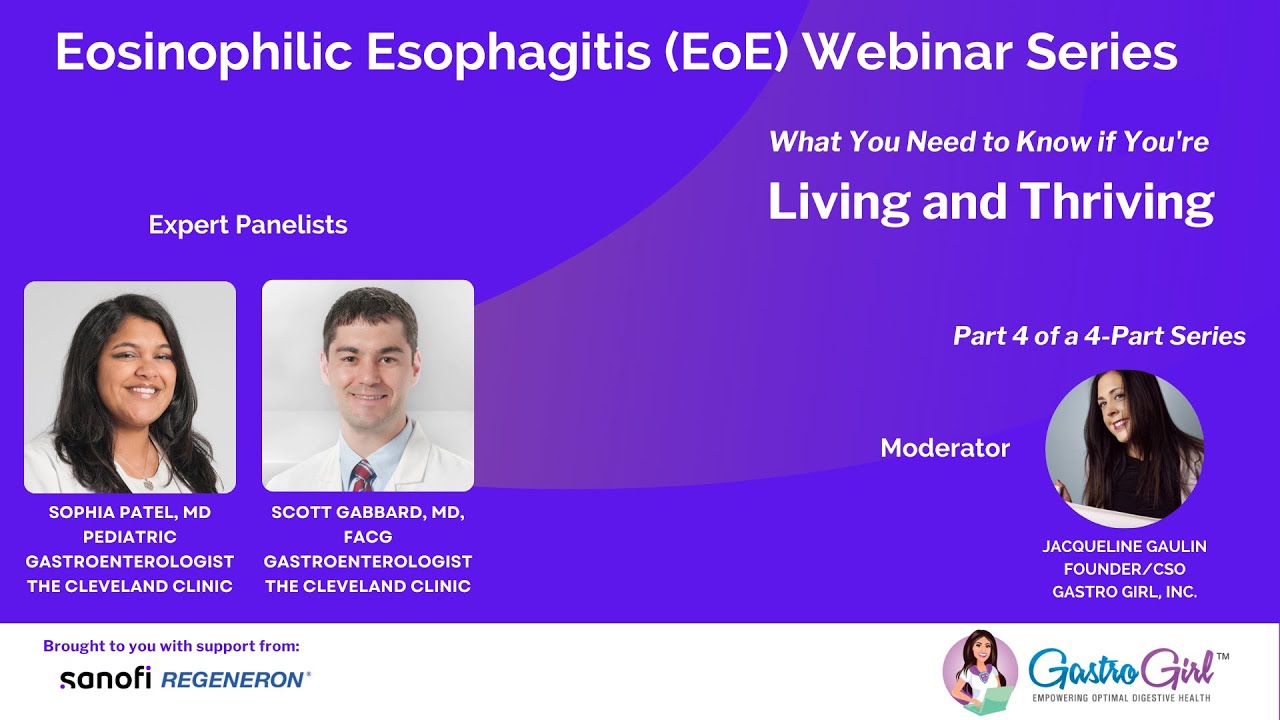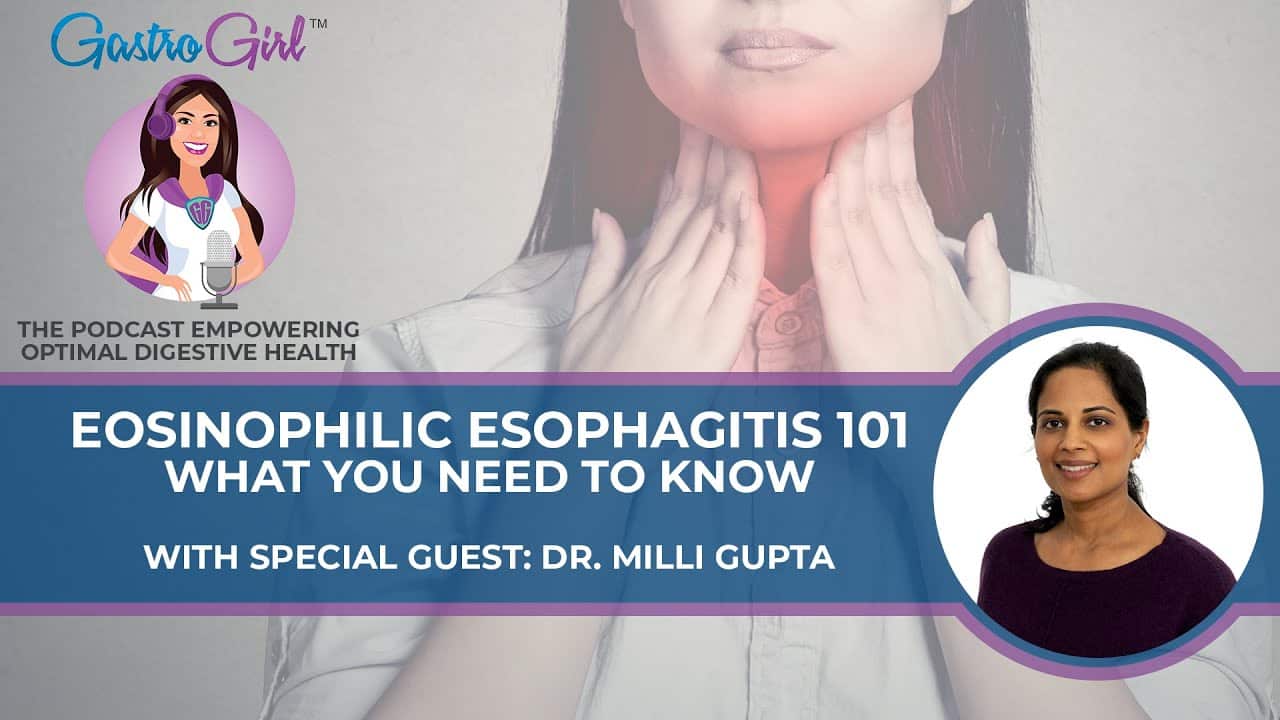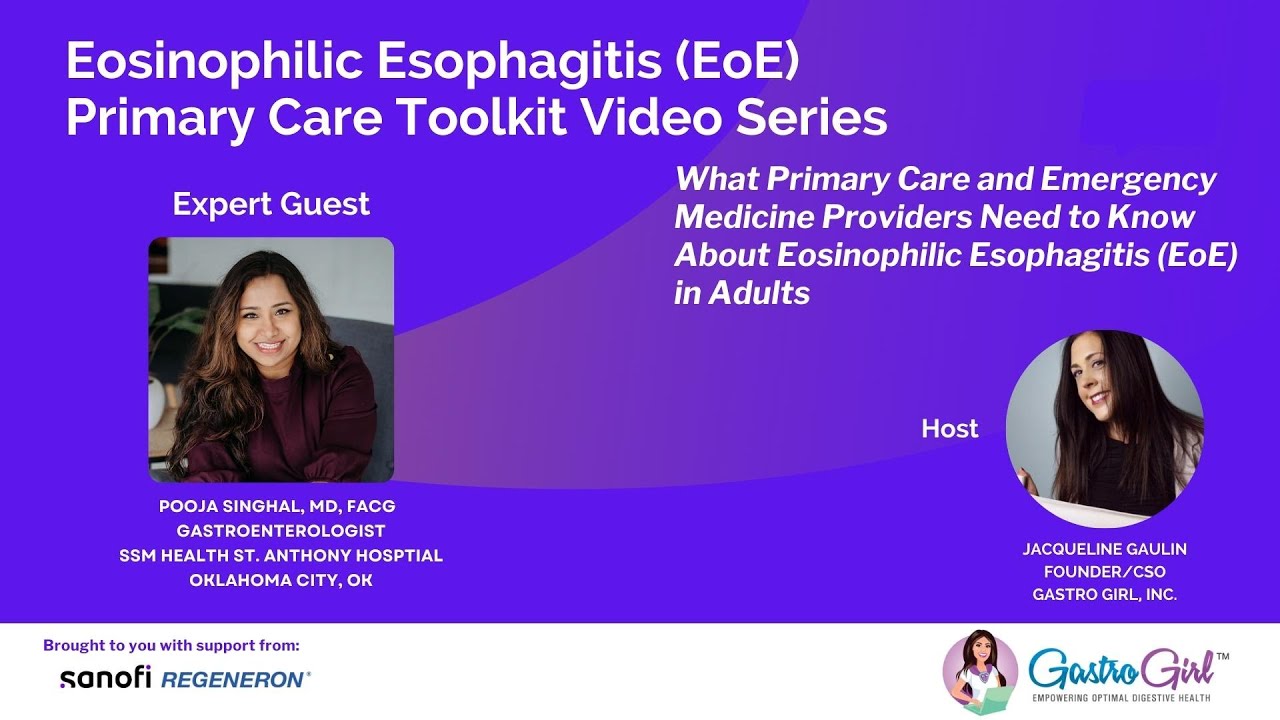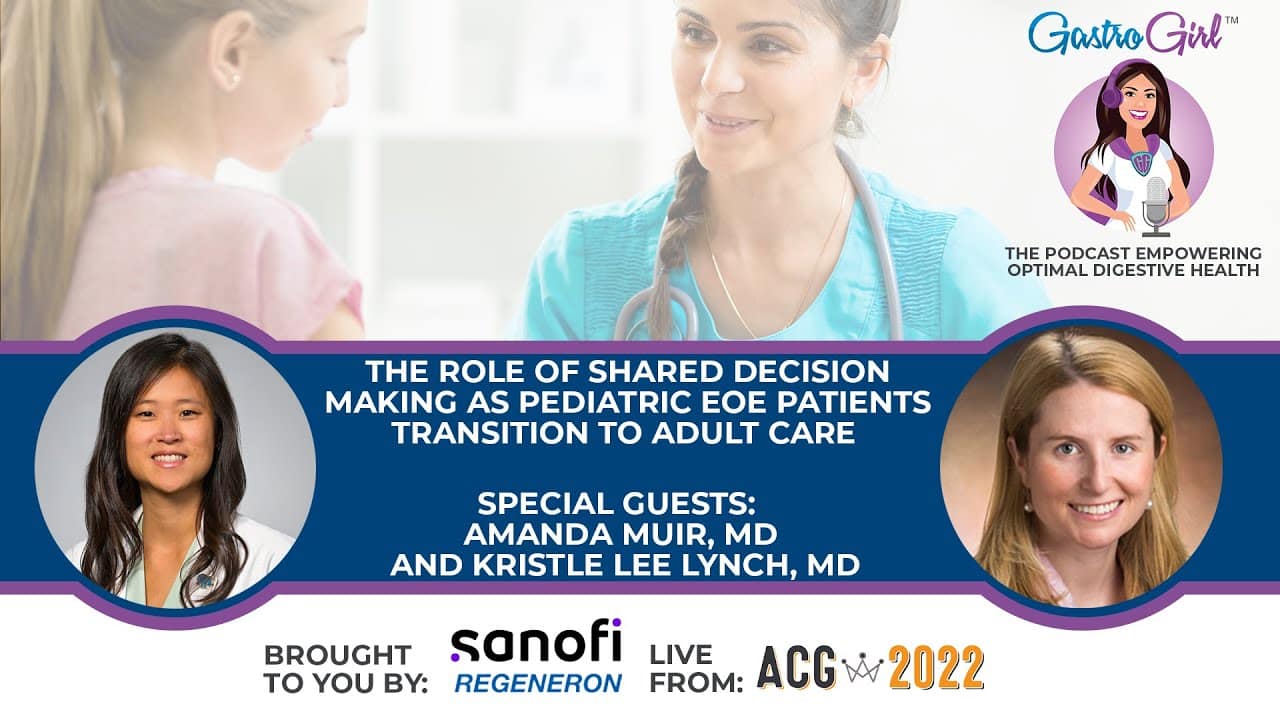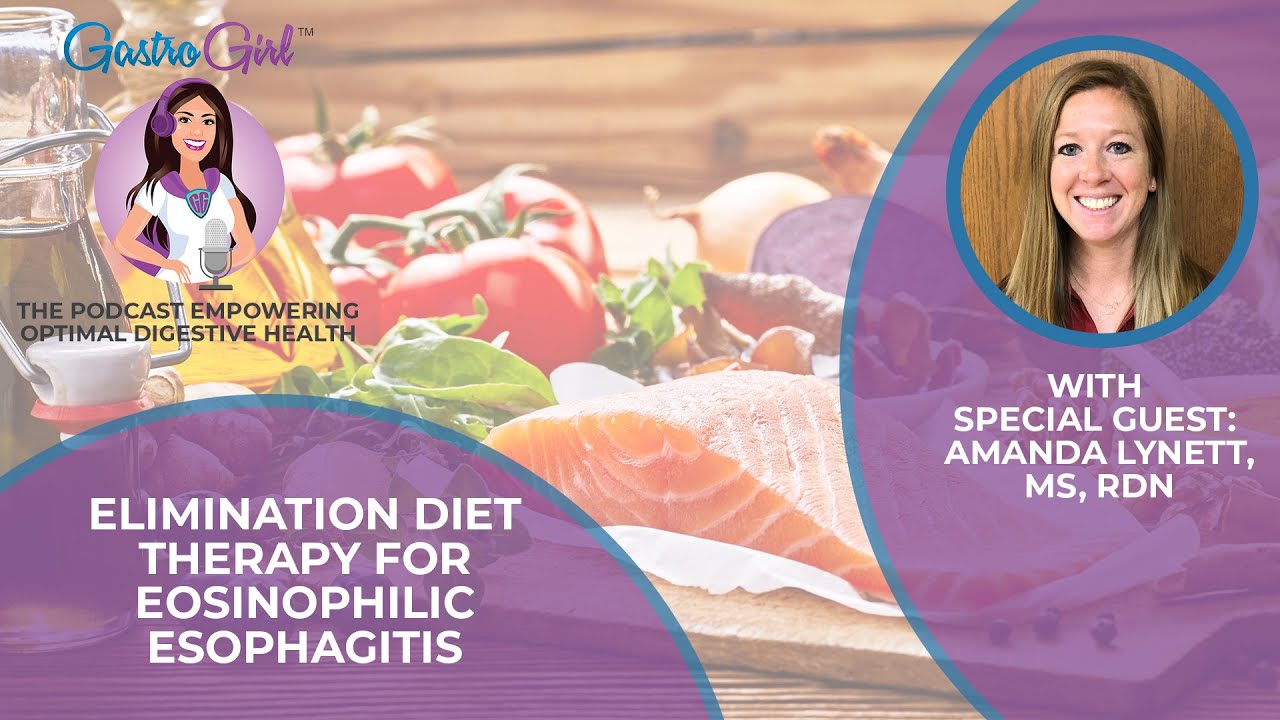Eosinophilic Esophagitis (EoE) Primary Care Toolkit
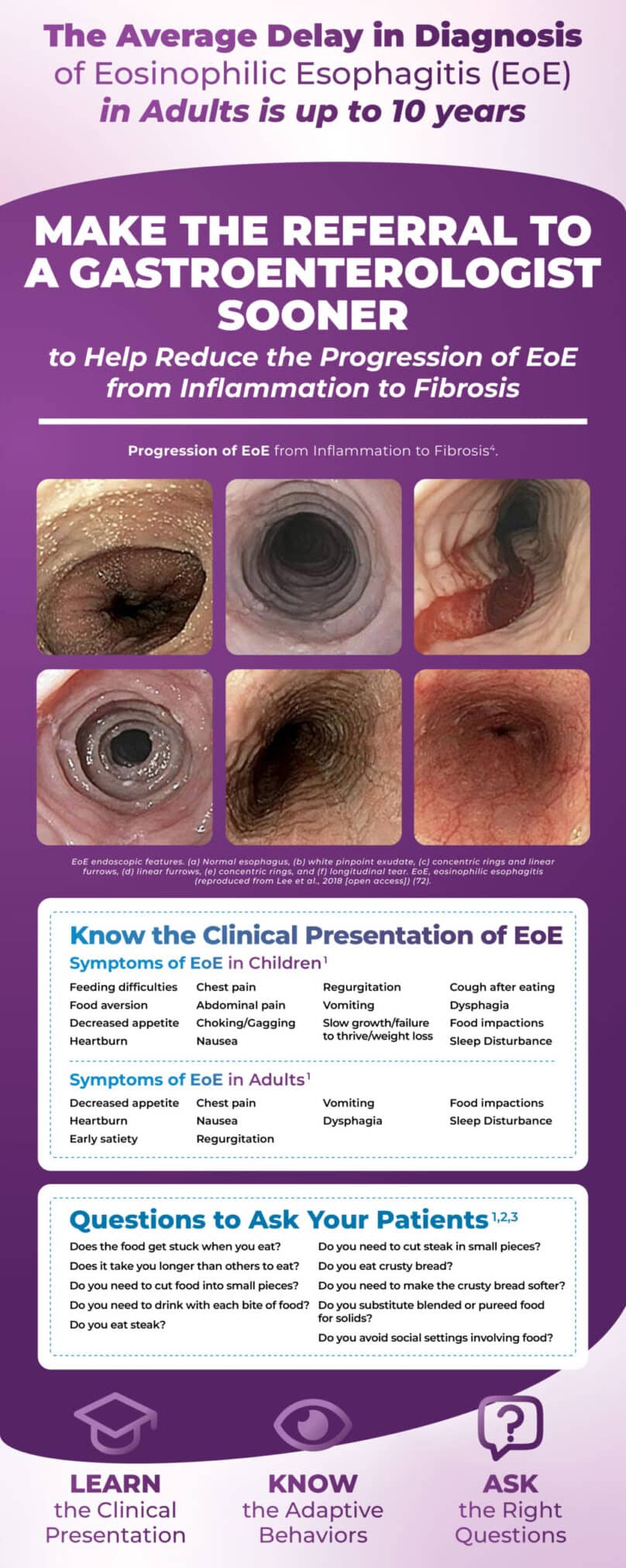
What Primary Care and Emergency Room
Providers Need to Know
September 28, 2023
What Primary Care and Emergency Medicine Providers Need To Know About Eosinophilic Esophagitis (EoE) In Adults
Dr. Pooja Singhal, a Gastroenterologist in Oklahoma City, OK offers some helpful tips and suggested questions that may help primary or emergency care providers recognize the clinical presentation of Eosinophilic Esophagitis (EoE) in adults. She also stresses the importance of not only referring the patient to a gastroenterologist post-ER or primary care office visit, but explains how vital it is to follow up with the patient and make sure they see the gastroenterologist. Dr. Singhal details some of the symptoms that overlap between EoE and other gastrointestinal conditions, as well as the adaptive behaviors patients may not even realize they’re doing to mask swallowing difficulty. We also dive into medical history discussions that primary care providers can have during regular consultations so they can make the referral to a gastroenterologist sooner.
September 28, 2023
What Primary Care and Emergency Medicine Providers Need To Know About EoE In Children
Dr. Sophia Patel, a Pediatric Gastroenterologist at The Cleveland Clinic shares her expertise on the clinical presentation of Eosinophilic Esophagitis as well as other forms of dysphagia in children. In this video, Dr Patel answers the following: What additional steps should emergency room healthcare providers take when a child comes in with a food impaction? What signs and symptoms should non-GI providers be looking for in children to signal a need for a gastroenterologist referral? What questions should a primary care provider ask during regular consultations or medical history discussions so they can make the referral to a gastroenterologist sooner?
September 28, 2023
Growing Up With Eosinophilic Esophagitis (EoE)
EoE is a chronic, allergic inflammatory disease of the esophagus that can leave adults struggling with their diet. So imagine if you were in our guest, Kathleen Sable’s shoes, and your infant son was diagnosed with this rare disease. Kathleen details her caregiver journey, and the steps she had to go through to give her son, Jeremy, as normal an upbringing as possible. Jeremy also joins us in this heartwarming mother/son patient story to share his perspective and what living with EoE means for him today.
Clinical Presentation of EoE at Your Fingertips
This easy-to-use fact sheet is your go-to-guide of the clinical presentation of EoE in adults and children. It also features key questions to ask patients. Use this tool during office visits or in the ER to help you make the referral to a gastroenterologist sooner.


Latest Clinical Guidelines
and Research
May 18, 2023
Admission Trends for Food Impaction and Foreign Body Associated With Eosinophilic Esophagitis
The prevalence of eosinophilic esophagitis (EoE) is estimated to be 0.5-1 in 1000 and is increasing across the United States. New cases of EoE are being diagnosed, in part due to increased awareness of the disease. Recent epidemiological studies have demonstrated that the natural course of EoE is a progressive transformation from an inflammatory to a complicated fibrostenotic disease. Increased prevalence has driven sentiment for an evidence-based management algorithm for EoE. We identified trends in hospital admissions for complicated EoE demonstrated by food impactions/foreign bodies (FI/FB) and highlight gaps in the current management.
May 18, 2023
Diagnostic Delay in Patients With Eosinophilic Esophagitis Has Not Changed Since the First Description 30 Years Ago: Diagnostic Delay in Eosinophilic Esophagitis
Eosinophilic esophagitis (EoE) is a chronic progressive disease. Diagnostic delay (DD) is associated with increased risk of esophageal strictures and food impactions. We aimed to assess the evolution of DD since the first description of EoE in 1993 until 2021.
May 18, 2023
ACG Clinical Guideline: Evidenced Based Approach to the Diagnosis and Management of Esophageal Eosinophilia and Eosinophilic Esophagitis (EoE)
Esophageal eosinophilia and eosinophilic esophagitis (EoE) are increasingly recognized and prevalent conditions, which now represent common clinical problems encountered by gastroenterologists, pathologists, and allergists. The study of EoE has become a dynamic field with an evolving understanding of the pathogenesis, diagnosis, and treatment.
May 18, 2023
Disease Burden and Unmet Need in Eosinophilic Esophagitis
Eosinophilic esophagitis (EoE) is a chronic, progressive, type 2 inflammatory disease of increasing prevalence, characterized by symptoms of dysphagia and reduced quality of life. A dysregulated type 2 immune response to food and aeroallergen leads to barrier dysfunction, chronic esophageal inflammation, remodeling, and fibrosis. Patients with EoE have impaired quality of life because of dysphagia and other symptoms.

EoE Education
Webinar Series
September 28, 2023
Eosinophilic Esophagitis (EoE) Webinar Series Part 1: Undiagnosed and Suffering in Silence
Do you or a loved one have trouble swallowing food? Does food ever get stuck in your throat? Do you or a loved one take longer to eat than everyone else and/or drink with every bite to help get the food down? If you answered yes to one or more of these questions, then you or your loved one may have a condition called Eosinophilic Esophagitis (EoE).
September 28, 2023
Eosinophilic Esophagitis (EoE) Webinar Series Part 2: Just Diagnosed
You or a loved one has just been diagnosed with Eosinophilic Esophagitis (EoE). What does that mean in the short term and the long term? How does this condition impact your quality of life? What treatment options are available? How will you manage new experiences that may include medications, therapy, or diet interventions? This webinar may lead you to some answers.
September 28, 2023
Eosinophilic Esophagitis (EoE) Series Part 3: Diagnosed With EoE But Not Under A Doctor’s Care
You’ve been diagnosed with EoE but have not been maintaining a consistent regimen with a healthcare provider. Perhaps treatment results haven’t been optimal, or put simply, life got in the way. You’re not alone.
September 28, 2023
Eosinophilic Esophagitis (EoE) Webinar Series Part 4: Living and Thriving
After finding the right multidisciplinary care team and undergoing treatment for a period of time, you’re starting to feel more like yourself. Your EoE is in remission. Swallowing food is no longer a fear-inducing practice. You have a better understanding of what may trigger your EoE and how to avoid those situations. You’re thriving!

Featured Resources
September 28, 2023
EOSINOPHILIC ESOPHAGITIS (E0E) 101: WHAT YOU NEED TO KNOW
Gastroenterologist Dr. Milli Gupta shares her expertise on Eosinophilic Esophagitis (EOE), an allergic condition in the esophagus that has serious physical and mental implications for struggling patients. We breakdown exactly what is happening in your throat during a flare up, symptoms that should trigger a call to your doctor, treatment options, and what to expect from food elimination diets designed to identify the triggers that can cause a flare up. This episode is brought to you by The American College of Gastroenterology’s Patient Care Committee.
September 28, 2023
What Primary Care and Emergency Providers Need To Know About Eosinophilic Esophagitis In Adults
Dr. Pooja Singhal, a Gastroenterologist in Oklahoma City, OK offers some helpful tips and suggested questions that may help primary or emergency care providers recognize the clinical presentation of Eosinophilic Esophagitis (EoE) in adults. She also stresses the importance of not only referring the patient to a gastroenterologist post-ER or primary care office visit, but explains how vital it is to follow up with the patient and make sure they see the gastroenterologist.
September 28, 2023
The Role of Shared Decision Making As Pediatric EoE Patients Transition To Adult Care
For most parents, helping their child who has a chronic digestive health condition, like Eosinophilic Esophagitis (EoE), transition from pediatric to adult health care is a big step. In this episode, Pediatric Gastroenterologist Dr. Amanda Muir and Gastroenterologist Dr. Kristle Lee Lynch, highlight the process and offer guidance for pediatric EoE patients (and their parents) on what to expect as they transition to adult GI care. Both doctors offer tips and insight for parents and young EoE patients to help make this handoff more manageable, including what happens to the parents’ role during and after their child’s transition to adult care and how to prepare young adult EoE patients for managing their own health care.
September 28, 2023
Elimination Diet Therapy For Eosinophilic Esophagitis
Eosinophilic Esophagitis (EOE) is a chronic allergic condition that occurs in the esophagus, with diagnoses on the rise in recent years. That’s why we asked registered dietitian, Amanda Lynett, to share her expertise on treating EoE with elimination diet therapy. Amanda gives her input on how to approach elimination diets safely, and an inside look at her course designed to help patients navigate the ins and outs of EoE food triggers in everyday life. Check out Amanda’s course here: education.giondemand.com
Listen to our
latest Podcast!

